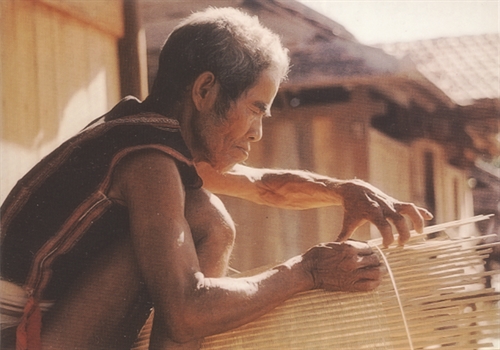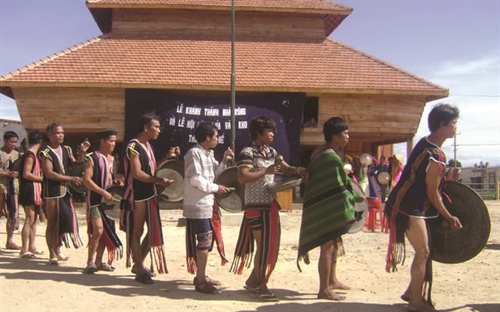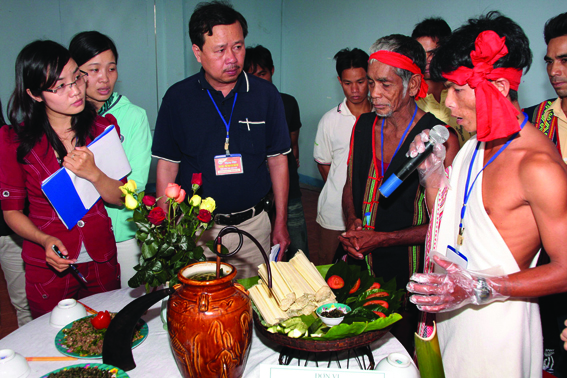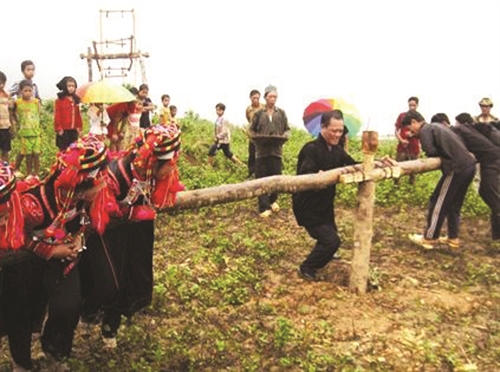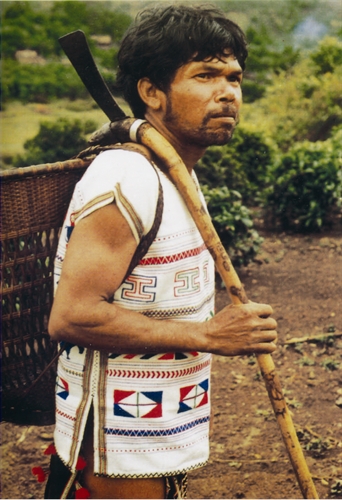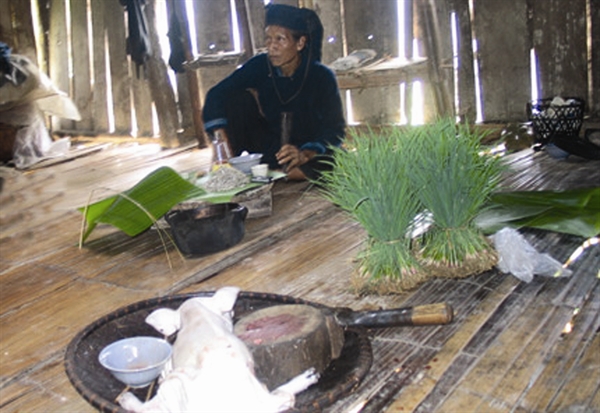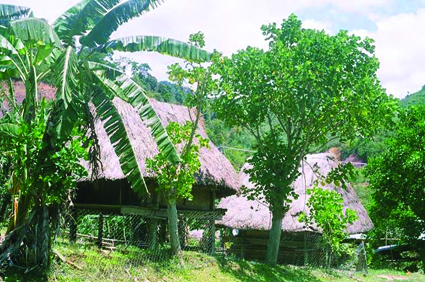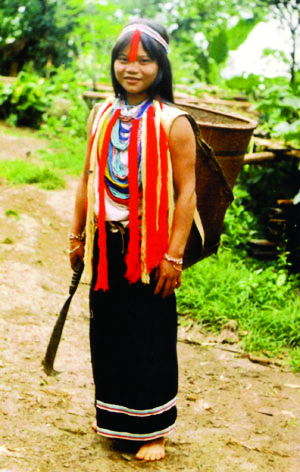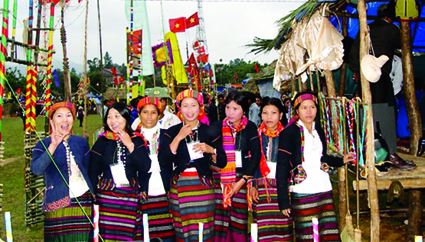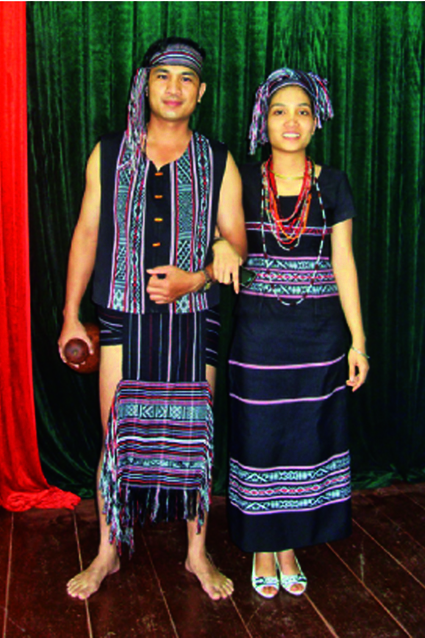To Dong Hai
Though each of the 54 nationalities living throughout Vietnam from North to South has its own form of customary law based on its own social development as well as its relations with neighboring ethnic groups, the customary laws of all such nationalities have one thing in common, that is they have been formulated from time immemorial, passed down from generation to generation and gradually supplemented and improved through time. Such customary laws are nothing but the regulations of each ethnic group on the code of conducts of each of its members towards the nature, ecological environment, the community and the entire society.
Being formulated on the basis of experiences accumulated throughout the history of formation, existence and development of each ethnic community, the customary laws have been reasonable and suitable to life and objective rules of the development. As a result, they have played a particularly important role in the development of the community, having helped it build up fine and durable relationships with the nature and ecological environment and consolidate the relations among its members, thus creating the cohesion of the community.
It can be said that most of the provisions in the customary laws basically aim to regulate acts of community members in order to protect the community’s interests, consolidate and develop the community itself.
Yet, having been formulated from ancient time in a social and cultural space which no longer fits the present life, some provisions of the customary laws have become outdated and insufficient, thus failing to meet the requirements of community development; hence, they need to be adjusted.
Worthy of note is that the customary laws, as having been created by the entire community, improved through time from generation to generation and tested through realities, have become the culture, the customs and practices of each ethnic community, accepted and observed by every member with full consciousness. All breaches of the customary laws have been tried by the community in a public, democratic and fair manner; and the trial has been supported by all involved parties (the plaintiff and the defendant as well). Judgments have always been seriously enforced with a view to bringing the convicts back to the community life rather than excluding them from the society. Therefore, the customary laws are characterized mainly by humanitarianism (excluding some outdated provisions which are superstitious, unscientific and unhygienic in their nature and need to be adjusted for their conformity with the present life).
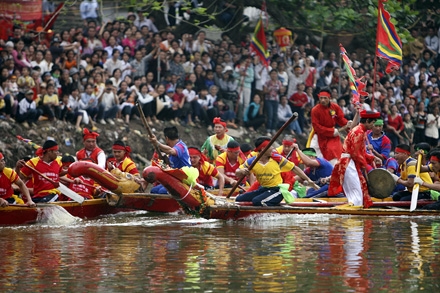 |
| Traditional boat race annually held in Dam village, Tu Lien district, Hanoi __Photo: Internet |
As mentioned above, the customary law of each ethnic community has its own form of existence. Some customary laws like those of the Thai, Muong, Cham… ethnic minorities have existed in form of documents while others like those of some ethnoses in the Central Highlands and southern Truong Son (Long Mountain range) have existed in form of oral verses or in form of community conventions automatically recognized and observed by people.
So, unlike State laws, the customary laws often contain unclear provisions which may be construed differently by adjudicators who are often resorted to “persuasion” but not to “coercion”. This has made the customary laws only a form of “pre-law” aiming to regulate acts of individuals in a certain community but not throughout the country like the State laws. Therefore, the customary law cannot take the place of the State law.
As Vietnam is a polyethnic nation where coexist 54 nationalities with their own customs and practices, there still exist in localities two law systems: The system of State laws and the system of customary laws. In the course of settling matters related to civil, economic and even penal relations here and there, the customary laws and the State laws have not been uniformly or properly applied. The customary laws shall not obstruct the State laws but increase the strength of the State laws and help the latter stretch their hand to every corner of the country if the positive and healthy elements of the customary laws are brought into full play.
With this in mind, the Vietnamese Party and State have advocated the building of a law-governed life in areas inhabited by ethnic minority people, based on the thorough understanding of the particulars of their cultural and social life as well as their own customs and practices. Decrees and other legal documents have been formulated in order to build up conventions on the cultural villages, in which the State respects and encourages people to work out regulations based on their own customs and practices, their cultural identities with a view to enhancing solidarity, mutual assistance within their community, encourage cultural code of conducts according to the national traditions and the State laws.
The application of customary laws fully complies with the provisions of the State laws if they do not run counter to the State laws. This is clearly stated in Article 14 of the Civil Code on the principles of application of customs and analogy of law: “ In cases where the law does not provide for and the parties do not come to an agreement, customs or analogy of law may be applied, provided that such applications are not contrary to the basic principle of this Code.”
Perhaps, this may be a reasonable form for the legal life in areas inhabited by ethnic minority people to embark on the renewal period and develop healthily, in which the positive elements of the customary law shall be fully promoted, thus helping the socialist legislation enhance its effect and become close to the ethnic minority people and contributing to the building of an abundant and happy life in rural mountain regions in order to achieve the objective of a prosperous people, a strong country and a civilized and equitable society set by the Party and the State.-
